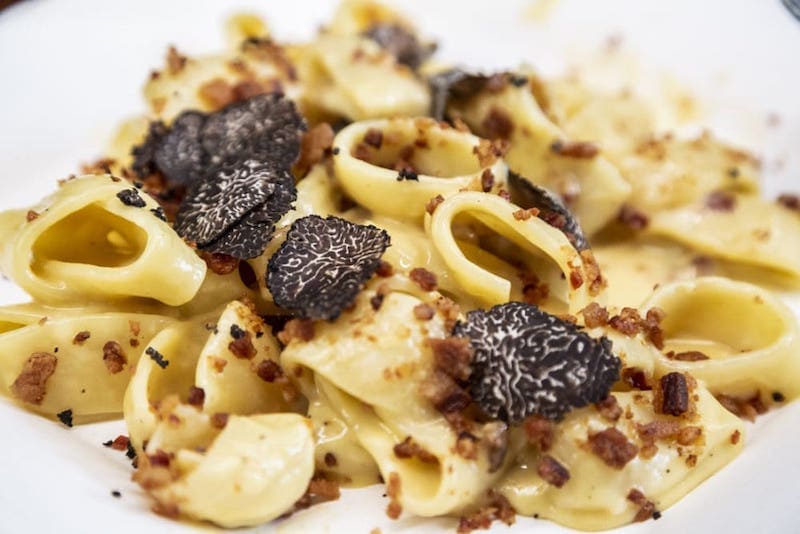
Welcome to a world rich in flavor, tradition, and passion. A world where food is not merely a necessity, but a form of expression, a work of art, a cultural heritage, and a way of life. This is the world of artisanal foods, where each ingredient is treated with respect, each process is done with care, and each product is crafted with an unmatched level of craftsmanship.
Artisanal foods are typically handcrafted in small quantities, using traditional methods and locally sourced ingredients. They are the antithesis of mass-produced, factory-made products that are often lacking in taste and nutritional value. The artisanal food movement is about a return to the basics, a celebration of nature’s bounty, a respect for the environment, and a commitment to sustainable and ethical practices in both preparation and sourcing.
But artisanal foods are not just about the product. They're about the people behind the product. The farmers who nurture the land, the bakers who rise before dawn, the cheese makers who follow old world recipes, the brewers who develop flavors, and the chocolatiers who create mouthwatering magic with cocoa and sugar. These are the culinary artisans who put their heart and soul into every small batch, every loaf, every food wheel, every bottle, and every bar.

Artisanal food preparation is an art form. It requires skill, patience, creativity, and a deep understanding of ingredients, methods and processes. The artistry in artisanal foods is evident by the intricate details in each presentation. But it goes beyond how food looks. It's about honoring traditions, preserving heritage, and creating something unique and memorable – something for people to talk about.
Artisans are not just food artisans; they are storytellers. Each presentation tells a story of its origin, reveals ingredients, its creation, and its journey from farm to table. These stories add depth and value to the presentation transforming food into an experience, a conversation starter, and a connection to a place and a community.
Food artisans are also innovators. They continually experiment, innovate, and push culinary boundaries to create new and exciting products. They are not afraid to take risks, to fail, and to learn. This spirit of innovation keeps the artisanal food scene vibrant, dynamic, and exciting as customers can’t wait to see what they come up with next.
Artisanal foods are often steeped in tradition, particularly breads and pastas. The use of traditional methods is a defining characteristic of these foods. These methods, often handed down through generations, are time-tested, reliable, and contribute to the authenticity and quality of some of the more traditional food products.
These methods also allow for a slower, more mindful approach to food production. They typically involve manual labor, meticulous attention to detail, and a high level of craftsmanship that can take years to perfect. This slow and steady process gives us foods that are rich in flavor, texture, and nutritional value.
But traditional methods are not just about what we see, they are about the process itself. The act of kneading dough, stirring a pot of fruit jam, aging milk cheese, or fermenting wheat or barley beer is therapeutic and rewarding. It's a reminder of simpler times, a connection to our roots, and a celebration of human ingenuity and resilience.
The terms handcrafted and small-batch are often used to describe artisanal foods. But what do these terms really mean, and why are they important? Handcrafted means that the product is made by hand, rather than by machines. This allows for a higher level of control over the process, resulting in a product that is unique, authentic, and of high quality.
Small-batch refers to the quantity of the product. Artisanal foods are typically produced in small quantities to ensure freshness, quality, and attention to detail. This contrasts with mass-produced foods, which are often made in large quantities to maximize efficiency and minimize cost.
Handcrafted and small-batch artisanal foods are a labor of love. They require time, effort, and skill. But the end result is worth it. These foods offer a taste experience that is unparalleled. They are a testament to the artisan's dedication, passion, and craftsmanship.

The use of local ingredients is a cornerstone of artisanal food production. Local ingredients are fresh, flavorful, and sustainable. They reflect the season, the climate, the soil, the character, and the biodiversity of a region. They embody the concept of terroir – the unique characteristics of a place that influence the taste of the food produced there.
Local ingredients also strengthen local economies by supporting local farmers, producers, and suppliers. They foster community ties, promote food sovereignty, and reduce the environmental impact of food transportation referred to as "food miles" and "carbon footprints".
Moreover, local ingredients add authenticity and uniqueness to artisanal foods. They offer a taste of place, a sense of home, and a connection to the land and the community.
The farm-to-table movement is about transparency, integrity, and sustainability. It’s about knowing where your food comes from, how it’s produced, and who’s behind it. Authentic farm-to-table artisanal foods are those that maintain a close connection between the farmer and the consumer, ensuring that the food is fresh, nutritious, and ethically produced.
Artisanal foods are often synonymous with farm-to-table because they prioritize locally sourced, seasonal ingredients. They value the relationship with local farmers and producers, and they respect the land and the environment.
Farm-to-table artisanal foods offer a holistic dining experience, sometimes served outdoors on the farm itself. They tell a story of the food’s journey from seed to plate. They educate consumers about food production, encourage mindful eating, and promote a healthier, more sustainable food system.
Artisanal foods come in many forms and styles, including heirloom and gourmet. Heirloom refers to varieties of fruits, vegetables, grains, and livestock that are preserved through traditional farming practices. Heirloom foods have unique flavors, colors, shapes, and nutritional profiles. They are a living legacy, a link to our agricultural heritage that can span hundreds if not thousands of years, and a source of biodiversity.
Gourmet, on the other hand, refers to foods that are of exceptional quality and sophistication. Gourmet artisanal foods are often made with high-quality, rare, or exotic ingredients. They are crafted with magnificent skill and creativity, resulting in a culinary experience that is not soon forgotten.
Whether it's a succulent heirloom Brandywine tomato, a decadent gourmet cheese, or a fragrant loaf of sourdough bread, artisanal foods offer a taste of luxury, a sense of indulgence, and a celebration of the finer things in life.

In a world where processed, artificial, and genetically modified foods are commonplace, natural artisanal foods offer a refreshing alternative. Natural artisanal foods are made with minimal intervention, using ingredients that are pure, wholesome, and free from artificial additives and preservatives.
The return to simplicity is not just about the ingredients. It's about the processes as well. Natural artisanal foods are often made using simple, traditional methods that preserve the natural flavors, textures, and nutrients of the ingredients used to prepare the food.
Natural artisanal foods are a reflection of the artisan's respect for nature, commitment to health and wellness, and dedication to authenticity and transparency. After all, we are talking about “real food" here.
The slow food movement is a global initiative that advocates for good, clean, and fair food for all. It promotes traditional food cultures, sustainable farming, biodiversity, and ethical consumption. Artisanal foods play a crucial role in the slow food movement.
The principles of slow food align perfectly with those of artisanal foods. Both value quality over quantity, tradition over convenience, and sustainability over profit. They encourage a mindful approach to eating, a connection with food sources, and a respect for the environment.
The Slow Food Movement is making a difference, one bite at a time.
Homestyle artisanal foods bring comfort, nostalgia, and a taste of home. These foods are often based on family recipes, regional specialties, or childhood favorites. They are made with love, care, and a touch of nostalgia tapping into memories of meals mom used to make.
Homestyle artisanal foods are about simplicity, authenticity, and connection. They remind us of home-cooked meals, family gatherings, and cherished traditions. They bring back happy memories, evoke warm emotions, and create wonderful new experiences.
Whether it's a bowl of grandma's chicken soup, a slice of mom's apple pie, or a batch of homemade pickles, homestyle artisanal foods offer a comforting, heartwarming, and soul-satisfying culinary experience.
Boutique artisanal foods are a blend of luxury and tradition. These foods are often exclusive, high-end, and limited in quantity. They are created by artisans who are masters of their craft, who pay meticulous attention to detail, and who prioritize quality over profit.
Boutique artisanal foods offer a unique, sophisticated, and memorable dining experience. They are a celebration of craftsmanship, a showcase of creativity, and a testament to the artisan's passion and dedication.
Whether it's a rare truffle-infused cheese, a bottle of small-batch craft beer, or a box of hand-painted chocolates, boutique artisanal foods are a treat for the senses, a pleasure for the palate, and a luxury to be savored.
Old-world techniques play a crucial role in modern artisanal food production. These techniques, often handed down through generations, are time-tested, reliable, and contribute to the authenticity and quality of the product.
Whether it's the art of fermenting sauerkraut, the craft of making sourdough bread, the tradition of aging cheese, or the skill of brewing beer, old-world techniques bring depth, complexity, and character to the world of artisanal foods.
Modern artisans respect and preserve these old-world techniques, but they also are open to adapt and innovate. When they combine tradition with innovation, old with new, classic with contemporary, they create a fusion of old-world techniques and modern ideas that keep the artisanal food scene vibrant, dynamic, and exciting.

Seasonality is a key principle in artisanal food production. Seasonal foods are those that are grown and harvested at the time of year when they are at their peak in terms of flavor, nutrition, and abundance.
Artisanal foods made with seasonal ingredients are fresh, flavorful, and sustainable. They reflect the cycle of nature, the rhythm of the seasons, and the diversity of the local ecosystem.
Seasonality also encourages creativity and variety. As the seasons change, so do the ingredients, resulting in a constantly evolving menu of artisanal foods.
Artisanal foods play a crucial role in preserving culinary heritage. They uphold traditional food cultures, safeguard food diversity, and keep culinary traditions alive.
Artisanal foods are a living legacy, a link to our culinary past, and a bridge to our culinary future. They tell the story of our ancestors, our cultures, our communities, and our cuisines.
Through their dedication to authenticity, quality, and tradition, artisanal food producers ensure that our culinary heritage is not lost but celebrated, preserved, and passed on to future generations.
Bespoke artisanal foods are custom-made to suit individual tastes, dietary needs, or special occasions. These foods are handcrafted with care, precision, and a personal touch, resulting in a product that is unique and memorable.
Bespoke artisanal foods offer a high level of customization and personalization. They cater to discerning consumers who value quality, individuality, and exclusivity.
Whether it's a gluten-free artisanal bread, a vegan artisanal cheese, a birthday cake made to order, or a gourmet gift basket curated for a weeding, bespoke artisanal foods are a celebration of a special occasion expressed by visually stunning, one-of-kind food presentations.

Terroir is a French term that refers to the unique characteristics of a place, location or region that influences the taste of the food produced there. It includes factors such as climate, soil, topography, and biodiversity.
Artisanal foods often embody the concept of terroir because they are made with local ingredients that reflect the specific conditions of their place of origin. They offer a taste of place, a sense of identity, and a connection to the land and a particular community.
Terroir adds depth, complexity, and uniqueness to artisanal foods. It makes each product a reflection of its environment, a product of its place, and a testament to the richness and diversity of a local food landscape.
Ethical sourcing is a key principle in artisanal food production. It refers to the practice of sourcing ingredients in a way that is respectful of people, animals, the land, and the environment.
Artisanal foods made with ethically sourced ingredients are not just good for the palate, they are good for the conscience as well. They support fair trade, animal welfare, biodiversity, and sustainable farming. They advocate for social justice, economic fairness, and environmental stewardship.
Ethical sourcing enhances the value, authenticity, and integrity of artisanal foods. Each artisan product becomes a symbol of responsibility, a model of sustainability, and a force for positive change.
Many artisanal food producers are family-owned businesses. These businesses are often multi-generational, rooted in tradition that span decades if not centuries, and driven by a shared passion for food and apprenticed craftsmanship.
Family-owned artisanal food businesses contribute to the quality, authenticity, and diversity of the food scene. They uphold traditional skills and knowledge, foster community ties, and keep local economies vibrant.
Family-owned businesses are the heart and soul of the artisanal food movement. They represent the human side of food production, the personal stories behind the products, and the families who dedicate their lives to the art and craft of food.
Hand-harvested and single-origin are terms often associated with artisanal foods. Hand-harvested means that the ingredients are picked by hand, ensuring freshness, quality, and minimal damage to the product and the environment.
Single-origin refers to foods that come from a single place, farm, or producer. A single-origin food ingredient offers a unique taste profile, clear traceability, and a strong connection to the very ground it was grown in.
Hand-harvested and single-origin artisanal foods represent the purity, authenticity, and integrity of the artisanal food movement. They offer a taste of the land, and a connection to place.
Direct trade is a business model that promotes direct relationships between producers and consumers. It ensures fair prices, transparency, and accountability.
Artisanal foods often follow the direct trade model, which values the relationship with farmers, producers, and consumers. They promote fair trade, sustainable farming, and ethical consumption.
Direct trade enhances the value, authenticity, and integrity of artisanal foods. It makes each product a symbol of responsibility, a model of sustainability, and a force for positive change.
The culinary artisan is a key player in the artisanal food movement. They are passionate about food, dedicated to their craft, and committed to quality, authenticity, and unique presentation.
Culinary artisans are not just producers, they are artists, storytellers, innovators, and community builders. They transform simple ingredients into culinary masterpieces. They tell stories through their products. They innovate to create new and exciting foods and they build communities around the love of food.
The rise of the culinary artisan is a testament to the growing appreciation for artisanal foods. It's a celebration of craftsmanship, a recognition of quality, and a shift towards a more mindful, sustainable, and authentic way of eating.
Artisanal foods are more than just a trend. They are a movement, a philosophy, a lifestyle. They represent a return to tradition, a respect for craftsmanship, and a commitment to sustainability. They offer a taste of real food, a connection to the source, and a celebration of culinary diversity.
As we explore the world of artisanal foods, let's continue to support our local artisans, explore new tastes, and celebrate the art and craft of food because every bite tells a story, every meal is an experience, and every artisan is a hero.
Ready to transform your land into a high-yield, sustainable farm? Let Crop Circle Farms design and build a custom, low-impact, and water-efficient farm tailored to your needs. Double your income and cut your costs in half! Contact Us
Help us expand our mission to revolutionize agriculture globally. We are seeking partners to implement Crop Circle Farms to feed people in need. Together, we can build scalable food production systems that save water, reduce costs, and feed thousands of people. Contact Growing To Give